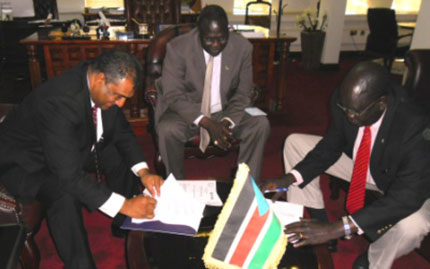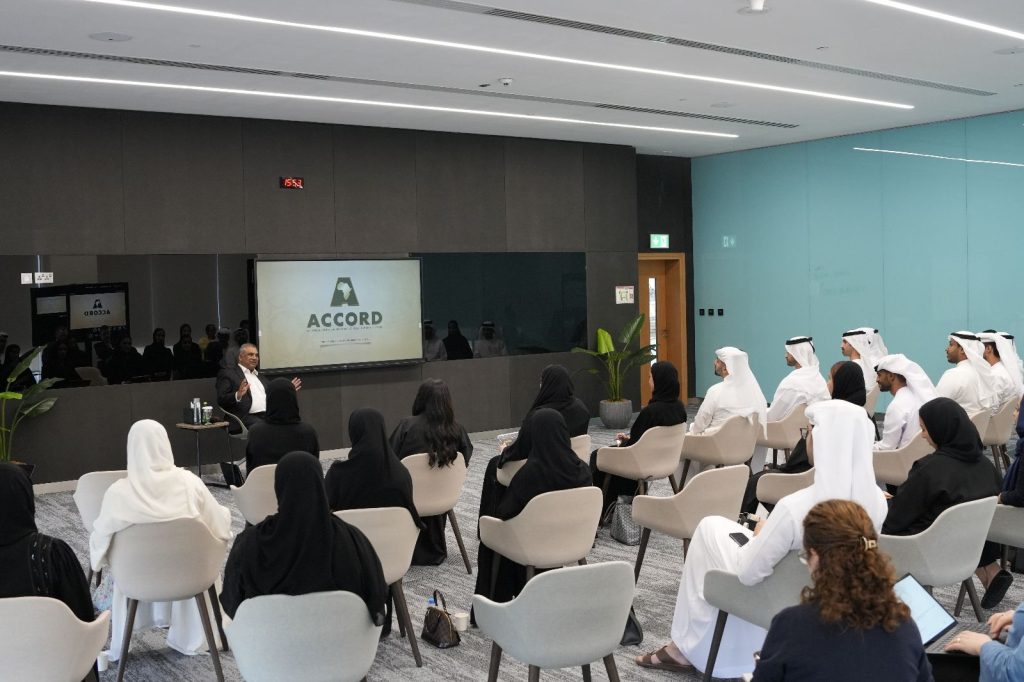The Republic of South Sudan’s Peace Commission and the African Centre for the Constructive Resolution of Disputes (ACCORD) have signed a Memorandum of Understanding (MoU) for partnership in peace building in South Sudan. Peace Commission chairperson, Chuol Rambang and ACCORD chairperson Vasu Gounden, sign MoU in the presence of VP Riek Machar in Juba on 28 Nov. 2012 (ST)
The partnership will make the government’s peace building institution and the international organisation to work together in promoting peace and harmony between communities in the country’s volatile areas. In the presence of the Vice-President Riek Machar on Wednesday, the chairperson of the Peace Commission, Chuol Rambang Luoth, signed on behalf of the government, and the Founder and Executive Director of ACCORD, Vasu Gounden, signed on behalf of his organisation.
ACCORD is a renowned South African-based civil society organisation working throughout Africa in conflict management, analysis and prevention. It intervenes in conflicts through mediation, negotiation, training, research and conflict analysis. Established in 1992, ACCORD’s primary aim is to influence political developments by bringing conflict resolution, dialogue and institutional development to the forefront as an alternative to armed violence and protracted conflict. In addition, ACCORD offers a range of training courses in conflict management theory and practice, and in mediation and negotiation. The organisation regularly provides customised in-house training for a range of clients in the business, government and civil-society sectors. The organisation has carried out similar peace building initiatives across the African continent.
In a statement after the signing ceremony, peace commission’s chairperson Chuol Rambang said the agreement will provide support to the government in carrying out the peace initiatives in the volatile states. He said the organisation will also train South Sudanese in peace building and sponsor inter-state conferences such as between Warrap, Unity and Lakes states, for instance.
From the Sudan Tribune on 29 November 2012.







